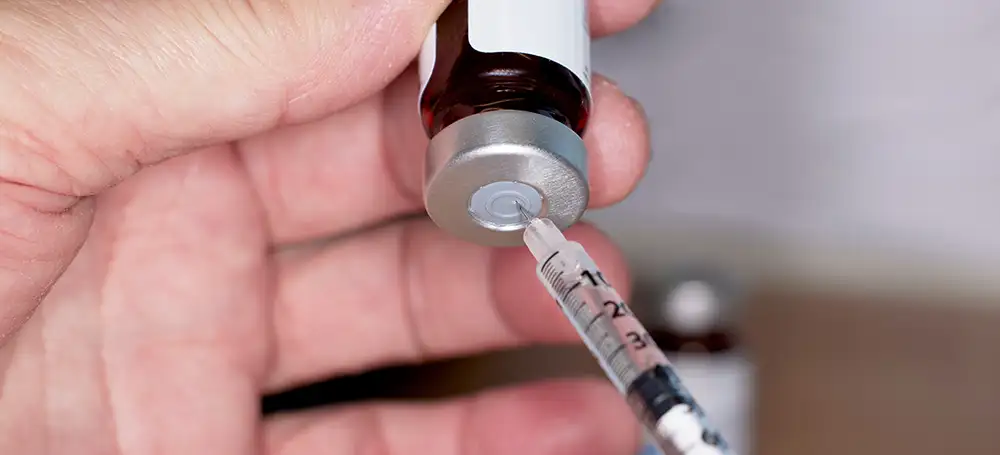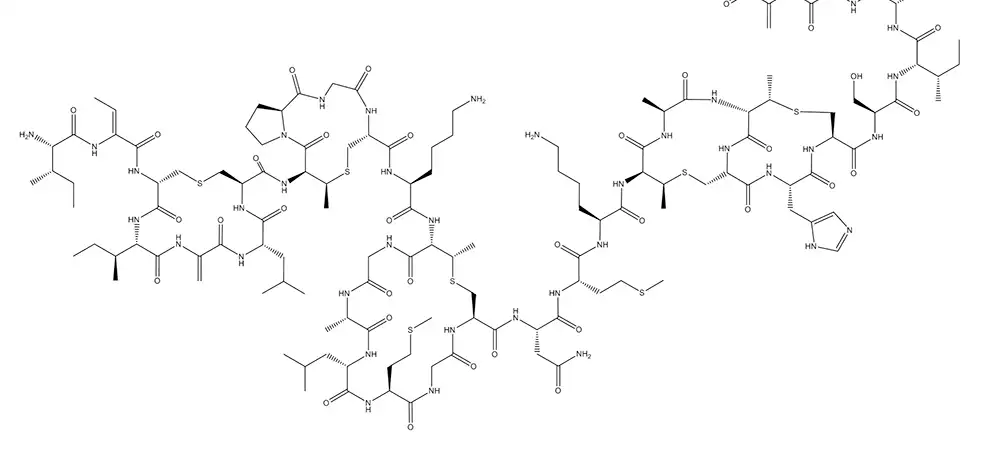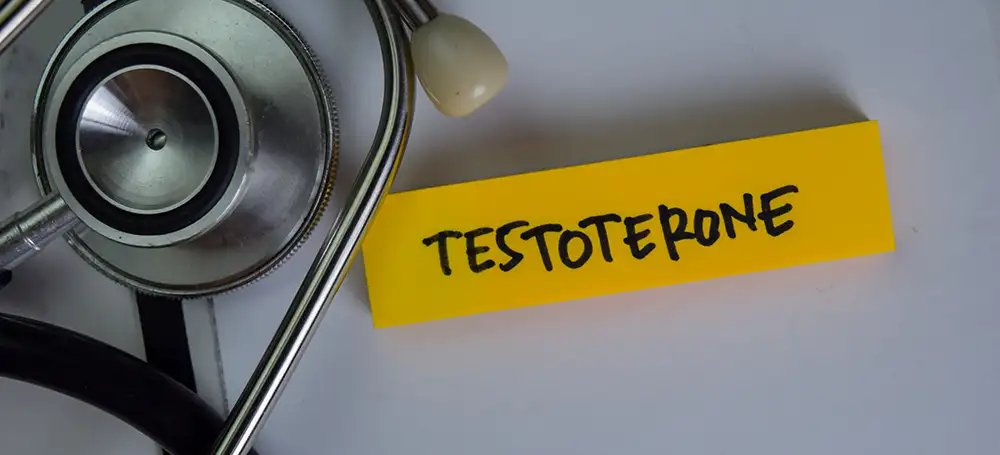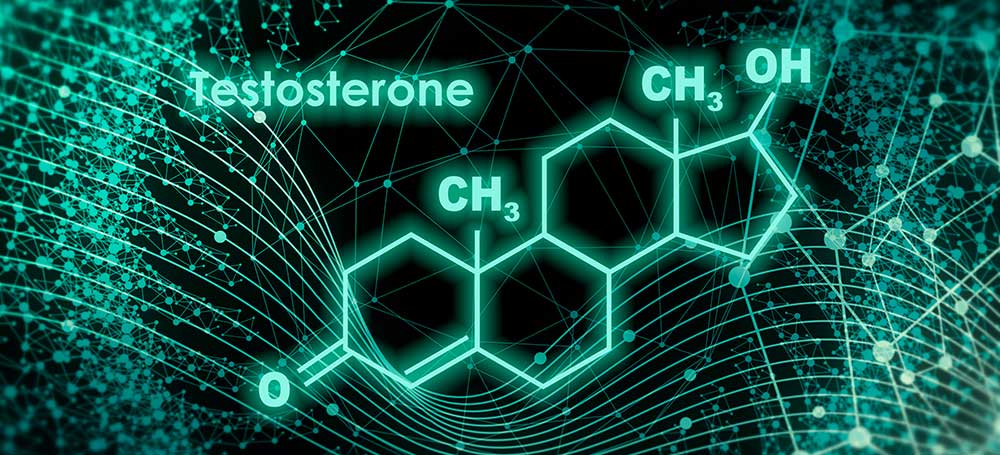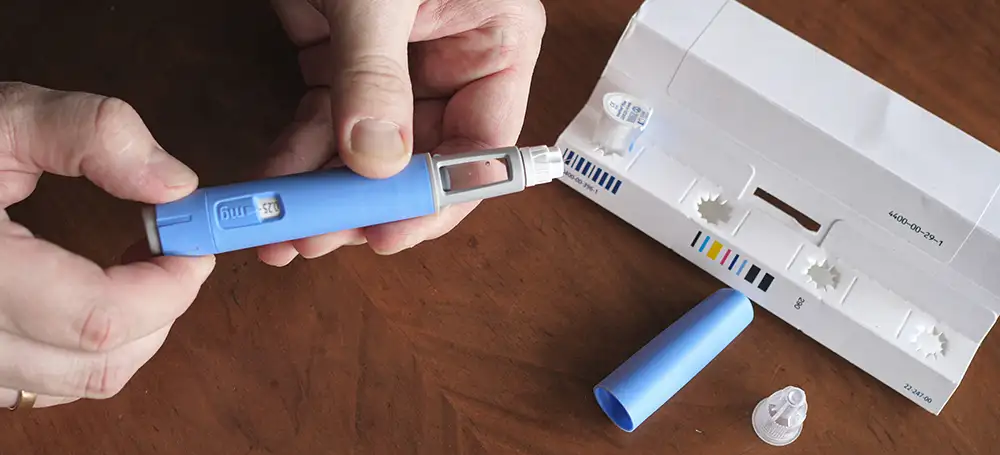Of course you feel tired. Fatigued, even. After all, you’ve had all those deadlines and extra hours at work. Your family and relationships are tugging on your emotional energy. You’re always stressed about money. And it’s just a busy time of year. When things calm down, you’ll sleep better, you’ll have more energy, you won’t feel so fatigued all the time. Right?
Maybe. But maybe not. While everyone certainly runs themselves ragged once in a while, if you’re experiencing fatigue and exhaustion on a chronic, even daily, basis, a medical reason is the possible cause of it. For many men, depleted hormone levels are behind their unending fatigue — especially a deficiency in testosterone.
The good news is that you can find out whether low testosterone levels are behind your fatigue. And if they are, you can do something about it right here in Boston. Keep reading to unravel the complex connection between testosterone and fatigue and to learn about solutions.
What Is Low Testosterone?
Testosterone is the male hormone that fuels your libido and sex life, but it does so much more than that. Testosterone is also at the root of your secondary sexual characteristics, including everything from facial hair to the building of muscle mass. It helps your metabolism stay strong and healthy, and it keeps you vital and vigorous. And it works behind the scenes as well, boosting your energy levels, your mental acuity, and even your bone health.
However, testosterone levels peak in men’s 20s. As you move into your 30s, your testosterone levels start to drop naturally, just a little bit every year. You’re unlikely to notice the decrease at first, since you’re only losing, on average, about 1% of your testosterone each year. Over time, though, some men’s testosterone levels drop below the normal range of 300 to 1,000 nanograms per deciliter (ng/dL). When that occurs, they can start to experience unpleasant symptoms — including unexpected fatigue.
The Relationship Between Low Testosterone and Fatigue
Because your body’s testosterone production is so linked to your vitality and energy levels, it’s not surprising that you can start to feel tired and lethargic when your testosterone levels drop. Maybe you just don’t have the energy to get going in the morning, or maybe you run out of steam halfway through the day and never seem to rebound.
Your fatigue can also affect your mental performance, making it hard to concentrate, and play games with your memory. And if you’re not sleeping well, the problems with fatigue become compounded.
Fatigue and Insomnia — Of Course They’re Related
Insomnia is one of the common symptoms of low testosterone. When it occurs, you don’t get the sleep your body needs, so naturally you’re tired the next day. You probably wake up feeling tired already. Now add that feeling to the lethargy that comes with low testosterone. You’re likely to find yourself sitting around doing nothing because the very idea of going to the gym or hanging with friends sounds too exhausting. When you treat your low testosterone, you may find that your insomnia eases, further relieving the issues you’re having with fatigue.
Other Causes of Fatigue in Men
Low testosterone is a major factor behind men’s fatigue, but it’s not the only cause. You might also develop chronic fatigue if your thyroid hormones are low. If you’re dealing with hypothyroidism, as low thyroid levels are called, you may also experience dry skin, weight gain, muscle aches, and sensitivity to cold. If you do suspect low thyroid levels as a cause for your fatigue, make sure to get your testosterone levels checked as well, as the two problems are sometimes linked.
Fatigue is also linked to depression — which, not surprisingly, is often a symptom of low testosterone as well. If you’re experiencing depression, you’re likely to feel hopeless, empty, and uninterested in what’s going on around you. You may have trouble sleeping and concentrating. If you’re experiencing depression, you may find help through medication or therapy, and increasing your testosterone levels may also make a difference.
Anemia, or low iron levels, can also create feelings of long-term fatigue and lethargy. If you donate blood frequently or if you’re a vegetarian or vegan, you’re possibly at risk for anemia. Low levels of vitamin B-12 and internal bleeding can also cause the condition, which also manifests with pale skin, difficulty breathing, and tingling in the hands and feet. A simple blood test can reveal whether you’re anemic or not.
Fatigue can also be a sign that there’s something serious going on as well. Heart disease, diabetes, kidney failure, chronic fatigue syndrome, and chronic obstructive pulmonary disease (COPD) all cause fatigue, as do other serious diseases. In addition, some medications can cause fatigue, as can substance abuse. The bottom line: if you’re experiencing long-lasting fatigue that isn’t explained by not getting enough sleep, or doesn’t resolve when you do get the sleep you need, see a doctor for testing.
Other Stress-related Symptoms Linked to Low Testosterone
Fatigue is one of those symptoms that can result from a wide range of causes. How can you tell, then, whether low testosterone levels are at the root of the issues you’re experiencing?
One major way is to consider your fatigue in light of other symptoms you’re experiencing. For example, fatigue is possibly caused by both low testosterone levels and anemia — but a decreased sex drive is not a result of anemia. By looking at all your symptoms, you’re better able to narrow down the cause of your fatigue.
Low testosterone levels produce a wide range of symptoms, many of which are also exacerbated by stress. Loss of libido and erectile dysfunction, for example, are often results of testosterone deficiency. Increased weight gain, especially around the belly, is also a common side effect of low testosterone levels — and one that can add to your low energy levels. Testosterone deficiency can also lead to depression, anxiety, loss of muscle mass, and brain fog. If you’re experiencing several of these symptoms in addition to fatigue, it’s time to have your testosterone levels tested.
Testosterone Replacement Therapy as a Treatment for Fatigue
If low testosterone levels are behind the fatigue you’re experiencing, there’s some good news. Testosterone replacement therapy is a proven treatment that relieves the feelings and symptoms of fatigue. With this treatment, you can regain the energy, alertness, and vigor that you used to consider normal.
As an added bonus, testosterone replacement therapy also treats the related symptoms of testosterone deficiency. If you’re experiencing erectile dysfunction or a low sex drive, you’re likely to find those issues becoming a thing of the past. You could also see yourself losing belly fat, gaining muscle mass, sleeping better, and regaining the ability to focus and concentrate.
If you suspect you have low testosterone, it’s easy to get tested. At Boston Vitality, we provide all the testing you need to check on your testosterone levels. Once you have that information, a discussion with your doctor can help determine whether testosterone replacement therapy is the right choice for you. And as you undergo the blood tests for testosterone deficiency, we can also test for other possible medical causes of your fatigue.
Other Tips for Combating Fatigue
You can take other actions to combat fatigue. Lifestyle changes make a big difference for a lot of men, whether you find a medical condition, such as testosterone deficiency, is at the root of your exhaustion or not. Take a look at some of the steps you can take to improve the way you feel.
Eat Healthy
A healthy diet can help give you the energy you need to get through each day without running out of steam. If you eat a lot of fried and processed foods, such as chips and candy, you’re taking in calories that don’t fuel your body well. In fact, these foods can drain your energy levels, leading to fatigue. Sweets, in particular, can deliver a sugar high that inevitably leads to a crash that amps up your fatigue yet again. Opt instead for whole foods that include plenty of lean protein, whole grains, and fruits and veggies.
Avoid Excessive Alcohol
You may feel that alcohol makes you sleepy (after it energizes you, of course) — but actually, it can mess with your sleep schedule. Limiting your alcohol intake will help you sleep better and alleviate fatigue during the day.
Practice Good Sleep Hygiene
If you’re not getting enough sleep, your body becomes stressed, leaning into fatigue. When your sleep is poor, your body also produces increased levels of cortisol, also known as the stress hormone. When your cortisol levels are elevated, your body pumps extra glucose into your bloodstream, triggering your fight-or-flight response — which is exhausting.
To get good sleep, keep your bedroom dark and cool. Going to bed at the same time each night will help you sleep better and make it more likely that you get enough sleep. You should also step away from screens at least an hour before bedtime or, if available, switch your devices to yellow light via Apple’s Night Shift or Android’s Night Light features.
As a bonus, your body produces testosterone while you’re sleeping. That means getting good sleep can help boost your testosterone levels just a bit, as well as pushing back against fatigue.
Exercise
You probably already know from experience that exercising helps you sleep better, thereby combating fatigue. It’s understandable if you feel too fatigued to drag yourself to the gym, but even a brief walk can help boost your energy levels. If you haven’t been exercising regularly, consider trying yoga to help reduce stress and lower your blood pressure. The relaxation that comes from this type of mind-body exercise can help you conquer fatigue. And you get an extra bonus as well, as exercise can help boost testosterone production naturally just a bit.
Keep Your Weight Under Control
If you have low testosterone, you’re likely carrying some extra weight, especially around your waist. And that extra weight often leads to fatigue, if only because you’re carrying extra pounds everywhere you go. You’ll also sleep better if your weight is healthier, easing your fatigue.
When to See a Doctor About Your Fatigue and Exhaustion
Lifestyle changes can help many men with fatigue and exhaustion. And everyone deals with occasional bouts of low energy from time to time. But if lifestyle changes to your sleep habits, diet, and exercise don’t alleviate your fatigue, and especially if you’re experiencing other symptoms of low testosterone, it’s time to see a doctor. At the very least, you can rule out more serious problems — and if low testosterone is a factor, we are ready to help.
At Boston Vitality, we care about your whole health. We understand how a hormonal imbalance can affect every part of your life, and we’re dedicated to your well-being. When symptoms point to testosterone deficiency, we’re here to provide the testing you need. We’ll also help you determine the right type of treatment and deliver the testosterone replacement therapy that can make all the difference. Contact us today to see how we can help.




